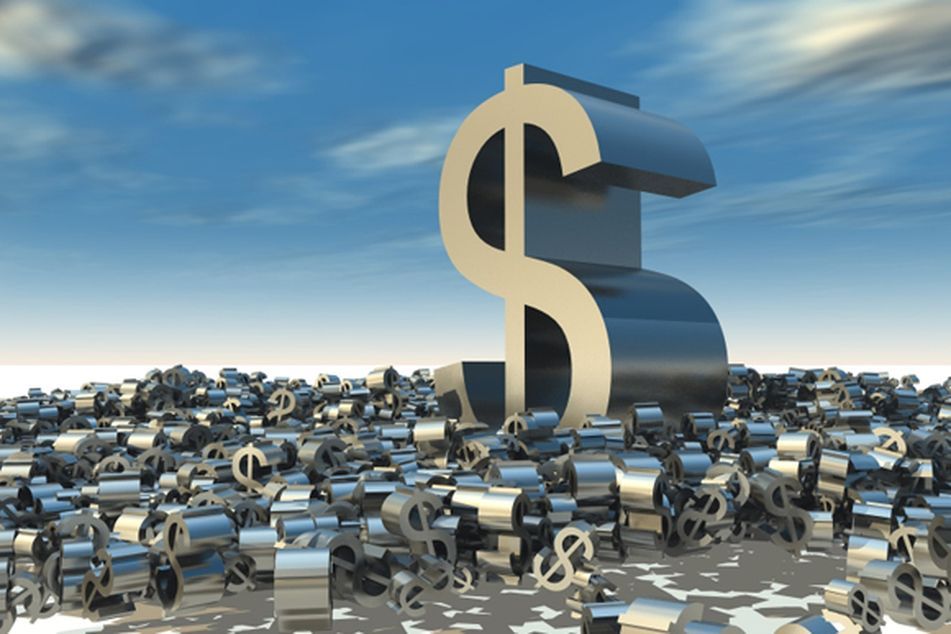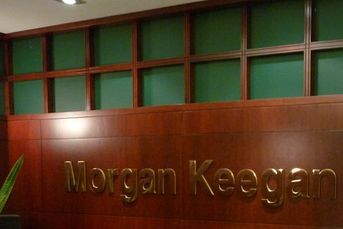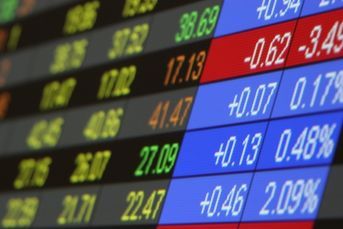JPMorgan, Credit Suisse top Greenwich’s U.S. equity broker list

U.S. equity research and related services from JPMorgan Chase & Co. was voted the most valuable to asset managers surveyed by Greenwich Associates.
U.S. equity research and related services from JPMorgan Chase & Co., the second-largest American bank by assets, was voted the most valuable to asset managers surveyed by Greenwich Associates, a report yesterday said.
Credit Suisse Group AG won the most U.S. equity trading volume based on commissions spent, the survey from the Stamford, Conn.-based research firm said. The two brokers, along with Morgan Stanley, Bank of America Corp. and Goldman Sachs Group Inc., placed in the top five in both categories. The responses from 217 fund managers and 304 equity traders were weighted by the dollar value of the commissions spent.
Asset managers decided how much to pay brokers from a commission pool that shrank 12 percent in the year that ended in mid-February to $11.6 billion, Greenwich said in another report on U.S. equities earlier this month. The contraction occurred as trading volume on American exchanges declined about 14 percent, according to data compiled by Bloomberg.
“Customers depend on research for their investment decisions,” said Joseph Cangemi, managing director at BNY ConvergEx Group LLC and chairman of the Security Traders Association, both based in New York. “If there’s less trading commissions available, firms will be forced to spend a greater percentage of their commission dollars on research.”
Commissions paid for research and advisory services, including access to executives at companies, rose to a 10-year high of 59 percent of the total from 53 percent a year earlier, Greenwich said. The dollar amount spent remained about the same at $6.8 billion, compared with $7 billion a year earlier, according to John Feng, Jay Bennett and John Colon of Greenwich.
Protecting Access
“Firms spent more proportionally for research services because they needed to protect their access to that advice,” Feng, a managing director at Greenwich, said in an interview. “Commissions are the currency to access those insights.”
Institutional brokerage commissions shrank and trading volume slowed as the U.S. stock market produced smaller gains. The Standard & Poor’s 500 Index, the benchmark measure of U.S. equities, surged 32 percent between Feb. 13, 2009, and Feb. 16, 2010, recovering from the subprime-mortgage crisis that saddled banks worldwide with $2.06 trillion in losses and writedowns. In the next year, it gained 21 percent.
Greenwich said the nine biggest brokers, which it didn’t identify, got 68 percent of U.S. equity commissions, up from 65 percent last year, while mid-size and regional brokers got 18 percent. Securities firms that execute orders for institutional clients without engaging in proprietary trading or offering investment banking services received 13 percent.
Goldman Sachs
The largest brokers, including Goldman Sachs in New York and Bank of America in Charlotte, North Carolina, offer more services than other securities companies. They can provide access to initial public offerings, company research and analysis, meetings with management, capital to help clients execute larger trades without swaying stock prices, and investment services.
When the commission pool shrinks, firms often concentrate their commissions with the bigger firms to remain valued clients and get the services they deem important. That puts more pressure on smaller brokers that struggle to maintain their level of trading and commissions to help fund their businesses.
The best brokers providing research and related services according to votes by fund managers aren’t necessarily the ones that get the most commissions in trading volume, Feng said. Factors such as the willingness to commit capital for a firm’s transactions and traders’ assessment of how well the securities company handles orders play into the decision.
Correlations
“There is a push-pull between the vote a broker earns and the commissions paid,” Feng said. “The results are highly correlated but not proportional.”
Of the amount paid for research and advisory services, 21 percent was used to compensate brokers for access to management at companies the firms may want to buy or sell, up from 19 the previous year, the Greenwich report said. Payment for analyst services decreased to 24 percent from 27 percent.
Sanford C. Bernstein & Co., JPMorgan and Morgan Stanley, all based in New York, were ranked the top brokers based on the quality of their U.S. research. The ranking based on research and advisory votes includes the quality and breadth of a firm’s offering, Feng said.
Credit Suisse in Zurich was also the top broker for North American trading of baskets of stock. That result was based on interviews with 109 firms, weighted by the dollar amount they trade, the Greenwich report said.
May 2010 Crash
In addition to needing to pay for research and investment services, asset managers and hedge funds became more concerned about electronic trading after the May 6, 2010, plunge that briefly erased $862 billion in equity value, Feng said.
That prompted them to pare back the use of electronic trading, including algorithms that break up orders into smaller pieces and dark pools, to 40 percent of the total dollar value of transactions from 45 percent the previous year, he said. Algorithmic trading claimed 19 percent of dollar volume, the same as the prior year. For dark pools, or private venues, the proportion slipped to 8 percent from 10 percent.
The average commission paid to brokers for algorithmic trading was 1.3 cents a share across asset managers, with hedge funds paying 1 cent, Greenwich said. Dark pools charged an average 1.4 cents. For direct market access, in which clients trade on exchanges themselves, brokers charged 1.2 cents on average, the report said.
Picking Brokers
The share of U.S. asset managers using so-called client commission arrangements increased to 64 percent from 54 percent the previous year, Greenwich said. These offerings allow mutual funds and asset managers to trade with brokers they want and add money to the commission paid to compensate other firms whose research they use. Nomura Holdings Inc.’s Instinet Inc., Capital Institutional Services Inc. and BNY ConvergEx have offered access to research from other firms for years.
The results of the U.S. equities survey may not indicate a shift in the longer-term trend toward more electronic trading by mutual funds, pensions and hedge fund clients, Feng said.
“If the commission pool goes back up next year, the percentage spent for research may revert to a historical norm,” he said.
–Bloomberg News–
Learn more about reprints and licensing for this article.







